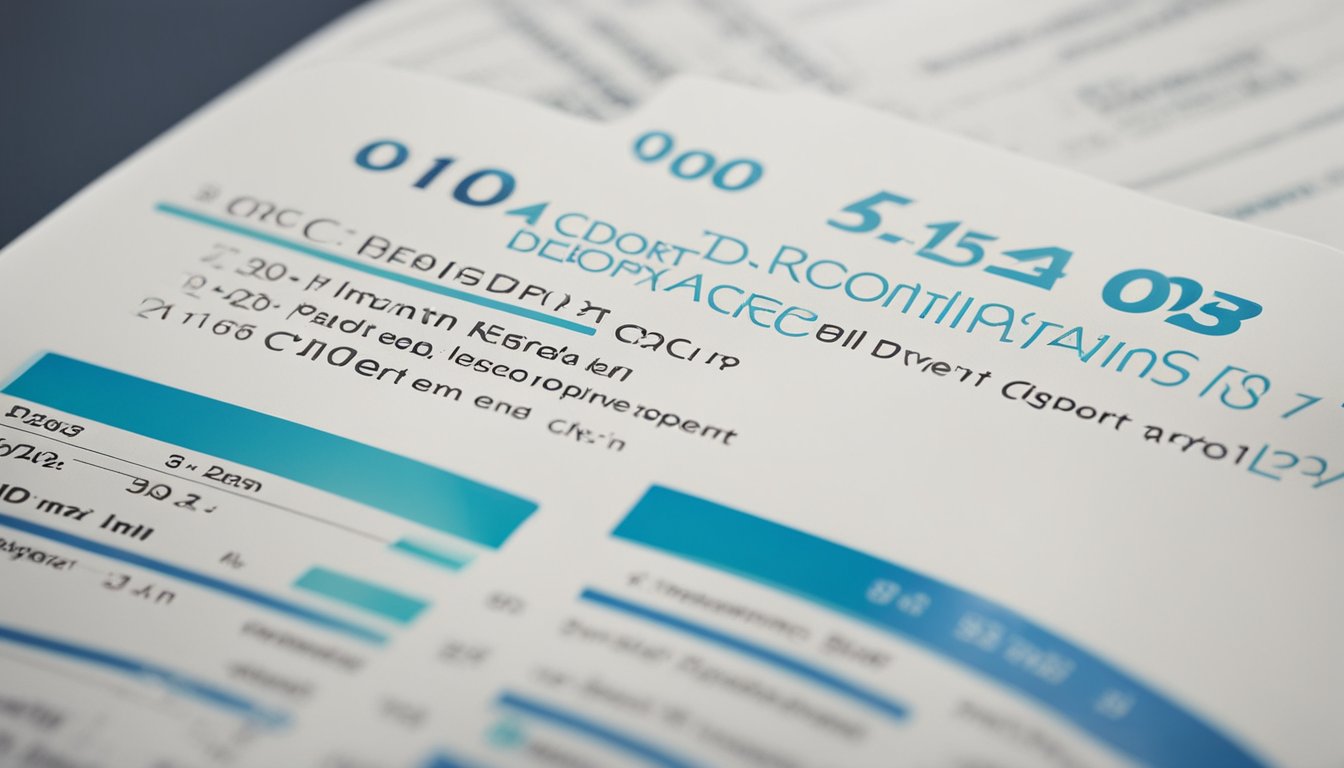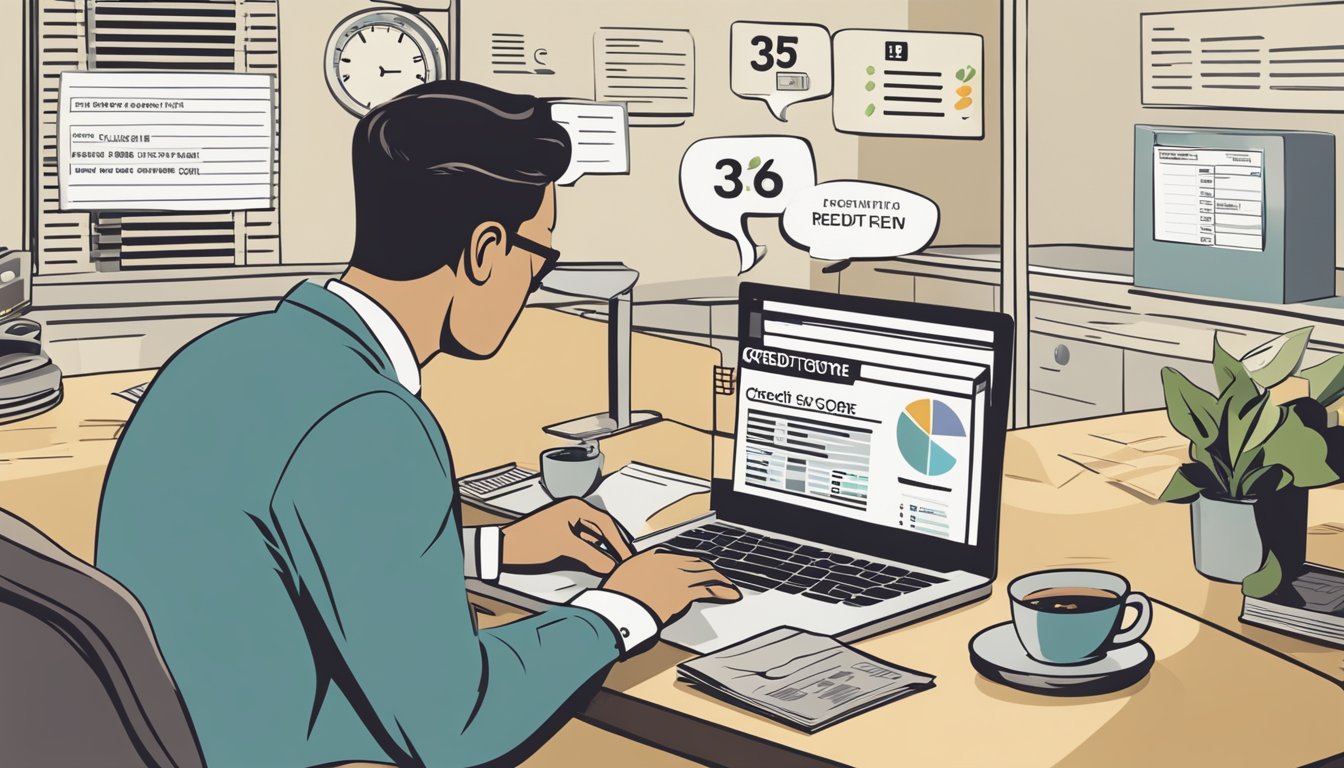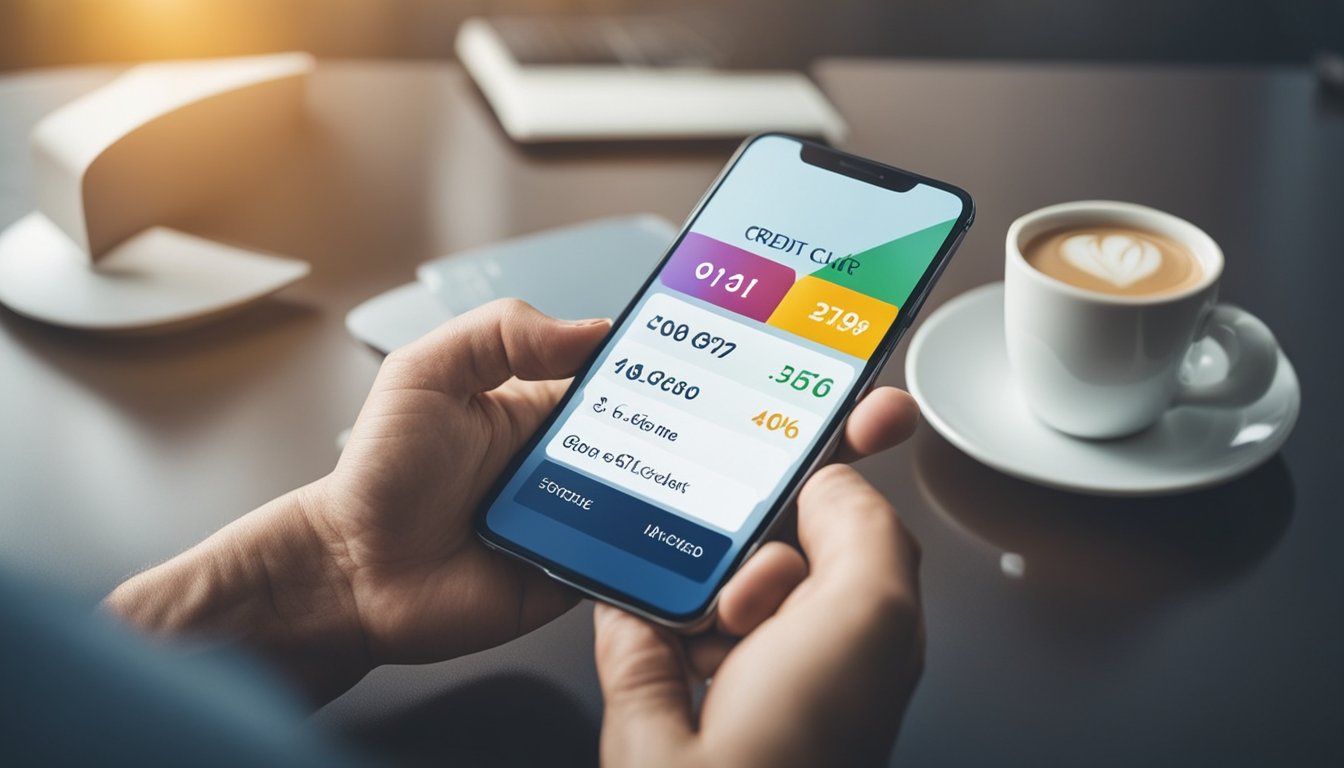Are you wondering if you can check your credit score for free in Singapore? The answer is yes, you can! Knowing your credit score is important because it can affect your ability to obtain credit and financial opportunities. In Singapore, credit scores are determined by the Credit Bureau Singapore (CBS), a government-authorized credit bureau.

Understanding your credit score can be confusing, but it is an important part of managing your financial health. Your credit score is a three-digit number that represents your creditworthiness and is based on your credit history. The higher your credit score, the more likely you are to be approved for credit and financial opportunities.
To access your free credit report in Singapore, you can request a copy from CBS. It is important to review your credit report regularly to ensure that it is accurate and to identify any errors or fraudulent activity. By reviewing your credit report, you can also identify areas where you can improve your credit health.
Key Takeaways
- You can check your credit score for free in Singapore through CBS.
- Your credit score is a three-digit number that represents your creditworthiness.
- Reviewing your credit report regularly is important for identifying errors and improving your credit health.
Understanding Credit Scores in Singapore

What Is a Credit Score?
Your credit score is a four-digit number that represents your creditworthiness. It is a numerical representation of your risk profile and is used by banks and other financial institutions to determine your creditworthiness. Your credit score is calculated based on your credit report, which contains information about your credit history, including your payment history, credit utilization, and the types of credit you have used.
The Importance of Credit Scores
A good credit score is important because it can impact your ability to get approved for loans, credit cards, and other financial products. A high credit score can also help you get better interest rates and terms on loans and credit cards. On the other hand, a low credit score can make it difficult to get approved for credit and may result in higher interest rates and fees.
Credit Bureau Singapore (CBS) Overview
Credit Bureau Singapore (CBS) is the main credit bureau in Singapore. It is responsible for collecting and maintaining credit information on individuals and businesses in Singapore. CBS provides credit reports to banks and other financial institutions, which use the information to make lending decisions.
You can check your credit score for free once a year by requesting a credit report from CBS. If you need to check your credit score more frequently, you can purchase a credit report from CBS for a fee. You can also get a free credit report from CBS if you have been denied credit within the last 30 days.
In conclusion, understanding your credit score is important for your financial health. By maintaining a good credit score, you can increase your chances of getting approved for credit and getting better interest rates and terms on loans and credit cards.
How to Access Your Free Credit Report

If you’re wondering how to check your credit score for free in Singapore, you’re in luck. Credit Bureau Singapore (CBS) offers a free credit report to individuals who meet certain eligibility criteria. Here’s how to access your free credit report:
Eligibility for a Free Credit Report
To be eligible for a free credit report, you need to have applied for a new credit facility with a CBS member. This could be a credit card, personal loan, or any other type of credit. Once your application is approved or rejected, you’ll receive a notification letter from the CBS member. This letter will contain redemption channels that you can use to obtain your free credit report within 30 calendar days from the date of the letter.
Steps to Obtain a Free Credit Report from CBS
To obtain your free credit report from CBS, follow these steps:
- Go to the CBS website and click on the “Get Your Credit Report” button.
- Fill in your personal details, including your name, NRIC/FIN, and contact information.
- Verify your identity by answering a few security questions.
- Choose the type of credit report you want (basic or comprehensive).
- Review and confirm your order.
- Your credit report will be sent to you via SingPost within 14 working days.
SingPost Branches and Redemption Channels
If you prefer to collect your credit report in person, you can do so at any SingPost branch. Simply bring along your notification letter and a valid photo ID. You can also obtain your credit report from any CBS member that you applied for credit with.
Remember, checking your credit report regularly is important for maintaining good credit health. It allows you to spot any errors or fraudulent activity and take action to correct them. So, take advantage of your free credit report and stay on top of your credit score.
Components of a Credit Report

When you check your credit score report in Singapore, you will find that it is made up of several components. These components provide detailed information about your credit history and financial behaviour. Here are the main components of a credit report:
Personal Details and Employment Status
The first section of your credit report will contain your personal details, such as your name, NRIC number, and contact information. This section will also include your employment status and history, including your current employer and job title.
Record of Credit Facilities and Payment History
The next section of your credit report will include a record of all the credit facilities you have applied for and used, such as credit cards, personal loans, and mortgages. This section will also include your payment history, which shows whether you have made your payments on time or if you have missed any payments.
Credit Enquiries and Default Records
The final section of your credit report will include any credit enquiries that have been made about you, such as when you apply for a loan or credit card. This section will also include any default records, which show if you have failed to make payments on your credit facilities.
It is important to regularly check your credit report to ensure that all the information is accurate and up-to-date. Any errors or incorrect information can have a negative impact on your credit score and may affect your ability to obtain credit in the future.
Analysing Your Credit Score

Once you have obtained your credit score report, it is important to understand how to analyse it. This will help you to better understand your creditworthiness and make informed decisions about your finances.
Understanding the Risk Grade
One of the key components of your credit score is your risk grade. This is a letter grade that indicates your level of creditworthiness. The risk grade ranges from AA (the highest) to HH (the lowest). The higher your risk grade, the more likely it is that you will default on a loan or credit card payment.
Interpreting Payment Patterns and Account Status
Your credit score report will also include information about your payment patterns and account status history. This information is used to determine your creditworthiness and risk level.
Your payment patterns show how timely you have been in making payments on your loans and credit cards. Late payments or missed payments can negatively impact your credit score. On the other hand, making payments on time can help improve your credit score.
The account status history section of your credit score report shows the status of your credit accounts. This includes information such as whether the account is open or closed, the credit limit, the balance, and the payment history. A good account status history can positively impact your credit score, while a poor account status history can negatively impact it.
By understanding how to analyse your credit score report, you can better understand your creditworthiness and make informed decisions about your finances. Keep in mind that your credit score is just one factor that lenders use to determine your creditworthiness. Other factors, such as your income and employment history, may also be considered.
Improving Your Credit Health

Improving your credit health is essential to achieving a good credit score, which can help you secure loans and credit cards with favourable terms. Here are some ways to improve your credit health:
Responsible Credit Card and Loan Usage
Using credit cards and loans responsibly is crucial to maintaining good credit health. Make sure to pay your bills on time and in full every month to avoid incurring interest charges and late payment fees. Avoid maxing out your credit limit and try to keep your credit utilization ratio below 30%. This will show lenders that you are a responsible borrower and can handle credit well.
Managing Debt and Avoiding Default
Managing your debt is crucial to maintaining good credit health. Make sure to pay off your debts on time and in full every month to avoid defaulting on your loans. If you are struggling to make your payments, consider reaching out to your lender to discuss alternative payment arrangements. Defaulting on your loans can have a significant negative impact on your credit score, so it’s important to avoid it at all costs.
Regular Monitoring and Error Rectification
Regularly monitoring your credit report is essential to maintaining good credit health. Check your credit report at least once a year to ensure that all the information is accurate and up-to-date. If you notice any errors or discrepancies, make sure to rectify them immediately by contacting the relevant credit bureau. Errors on your credit report can negatively impact your credit score, so it’s important to address them as soon as possible.
In summary, improving your credit health is crucial to maintaining a good credit score. By using credit cards and loans responsibly, managing your debt, and regularly monitoring your credit report, you can take control of your financial health and secure favourable terms on loans and credit cards.
Credit Score’s Impact on Financial Opportunities

Your credit score is an important factor that can affect your financial opportunities. It can influence your loan approval, interest rates, and even employment checks. Here are some of the ways your credit score can impact your finances:
Influence on Loan Approval and Interest Rates
When you apply for a loan, lenders will check your credit score to determine your creditworthiness. A higher credit score can increase your chances of loan approval and also help you secure lower interest rates. On the other hand, a low credit score can result in loan rejection or higher interest rates.
Credit Score and Employment Checks
Some employers may also check your credit score as part of their background check process. This is especially true for jobs that require financial responsibility or involve handling money. A low credit score may raise red flags and affect your chances of getting hired.
The Role in Housing and Renovation Loans
If you’re planning to buy a house or renovate your home, your credit score can also play a role. For example, if you’re applying for a mortgage loan or an HDB loan, lenders will check your credit score to determine your eligibility. A high credit score can increase your chances of approval while a low score can result in rejection or higher interest rates.
Similarly, if you’re planning to take out a renovation loan, your credit score can also affect your eligibility and interest rates. In some cases, a low credit score may even result in loan rejection.
It’s important to keep in mind that your credit score is just one of the factors that lenders and employers consider. Other factors such as your income, employment history, and debt-to-income ratio can also play a role. However, maintaining a good credit score can help you improve your financial opportunities and achieve your goals.
Navigating Financial Products with Your Credit Score

Choosing Credit Cards and Personal Loans
When you have a good credit score, you have the advantage of being eligible for a wider range of credit cards and personal loans. These financial products often come with attractive interest rates and rewards tailored to your creditworthiness. With a good credit score, you can access credit cards with lower annual fees and higher credit limits. Similarly, you are likely to qualify for personal loans with lower interest rates and more favourable terms.
Debt Consolidation Plan and Credit Limits
A good credit score can also open doors to debt consolidation plans that allow you to combine multiple debts into a single, more manageable loan. This can potentially help you reduce your overall interest payments and simplify your financial obligations. Moreover, your credit score influences the credit limits you can obtain on your credit cards. A higher credit score can lead to higher credit limits, providing you with more flexibility in managing your finances and expenditures.
Advanced Tips for Credit Score Excellence

To achieve a high credit score, you need to be strategic in your approach. Here are some advanced tips to help you achieve credit score excellence:
Leveraging Credit History for Better Rates
Your credit history plays a significant role in determining your credit score. The length of your credit history, the number of accounts you have, and the types of credit you use are all factors that can affect your credit score.
To leverage your credit history for better rates, you need to have a long credit history with a good mix of credit types. This means having a mix of credit cards, loans, and other forms of credit.
To maintain a good credit history, it’s important to pay your bills on time and avoid carrying large balances on your credit cards. If you have a credit card with a high balance, consider paying it off as soon as possible to reduce your credit utilization ratio.
Strategic Credit Applications and Credit Mix
When you apply for new credit, it can have a negative impact on your credit score. This is because each time you apply for credit, the lender will check your credit report, which can lower your score.
To avoid this, it’s important to be strategic in your credit applications. Only apply for credit when you really need it and are confident that you will be approved.
It’s also important to have a good mix of credit types. This means having a mix of revolving credit, such as credit cards, and installment credit, such as a car loan or mortgage.
Having a good credit mix shows lenders that you can handle different types of credit responsibly and can help boost your credit score.
By following these advanced tips, you can achieve credit score excellence and enjoy lower interest rates and better credit offers.
Conclusion

Congratulations! You now have the power to take control of your financial health by checking your credit score for free in Singapore. By utilising the resources provided by Credit Bureau Singapore (CBS), you can gain insight into your creditworthiness and take steps to improve your financial standing. Remember, a good credit score can open doors to better loan terms, credit card offers, and more. Keep track of your credit score regularly to stay on top of your financial game. With this knowledge, you can make informed decisions and work towards achieving your financial goals.
Frequently Asked Questions

How can I obtain my credit report online at no cost in Singapore?
You can request your credit report for free once a year from the Credit Bureau Singapore (CBS). You can do this online through the CBS website, or by visiting any SingPost branch or the Credit Bureau office in person. You will need to present a physical ID for verification at the SingPost branch.
What are the steps to access a complimentary credit bureau report through DBS?
If you are a DBS customer, you can access a complimentary credit report through DBS. Simply log in to your DBS iBanking account, go to the “Cards” tab, select “Credit Bureau Report”, and follow the instructions to obtain your report.
Is it possible to view your credit score in Singapore without incurring any charges?
While you cannot view your credit score for free in Singapore, you can obtain your credit report for free once a year from the Credit Bureau Singapore (CBS). Your credit report will contain information about your credit history, including your credit score.
Could you guide me on procuring a free credit bureau report?
To obtain a free credit report from Credit Bureau Singapore (CBS), you can visit the CBS website, any SingPost branch, or the Credit Bureau office in person. You will need to present a physical ID for verification at the SingPost branch.
What methods are available for clearing my credit score in Singapore?
If you have outstanding debts, the best way to clear your credit score is to pay off your debts in full. You can also work with a credit counselling agency to develop a debt management plan and negotiate with your creditors to reduce your debt.
Are residents of Singapore able to check their credit scores regularly for free?
While you cannot check your credit score for free in Singapore, you can obtain your credit report for free once a year from the Credit Bureau Singapore (CBS). Your credit report will contain information about your credit history, including your credit score.

